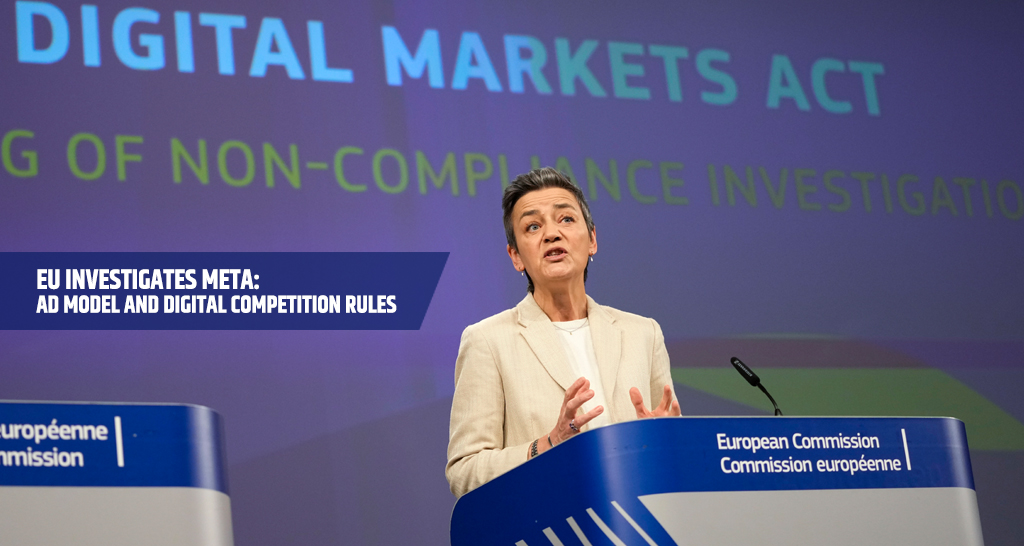Meta, the parent company of Facebook, is in trouble with the European Union for possibly breaking new digital competition rules. It is about the controversial “pay or consent” advertising model. On Monday, the EU’s main governing body, the European Commission, said that Meta’s new advertising model is problematic. This model allows users to choose between paying up to €12.99 ($14) each month for ad-free versions of Facebook and Instagram. Alternatively, users can agree to see personalized ads.
The EU’s Digital Markets Act (DMA), which started in March, aims to regulate large online platforms called “gatekeepers.” It seeks to give users more choices and ensure fair competition among rivals. The Commission’s primary concern is that Meta’s current model forces users to agree to use their personal data for personalized ads without offering a similarly effective option.
If the Commission’s preliminary findings are confirmed, Meta could face a huge fine of 10% of its global annual revenue. Based on Meta’s 2023 revenue, this fine could be as much as $13.5 billion.
Meta’s Stance and Legal Defense
Meta has denied the Commission’s findings, saying that its “Subscription for no ads” model follows the rules of the highest court in Europe and complies with the DMA.A Meta spokesperson said they hope to have a positive discussion with the European Commission. They aim to resolve the investigation peacefully.
Broader Implications for Tech Giants
The EU is taking action against Meta as part of a wider effort to regulate major tech companies under the DMA. Recently, the Commission accused Apple of breaking DMA rules by limiting how app developers can guide consumers to more affordable services. Google’s parent company, Alphabet is also being investigated, showing the EU’s tough approach on regulating powerful digital platforms.
Margrethe Vestager, the European Commissioner in charge of competition policy, stressed the crucial importance of users having control over their personal data. She noted that Meta has collected extensive personal data from millions of EU citizens over the years. The Commission aims to empower citizens to manage their data and choose to see less personalized ads.
The Path Forward
Michael Koenig, a senior official at the Commission, explained the expectations for Meta. He said Meta must offer an alternative for less personalized ads that do not use personal data. This alternative should be automatically less personalized by default but still accessible to users. Additionally, Meta can keep its subscription model without ads and potentially introduce premium features as further options.
The Commission’s investigation will finish by late March next year. This is an important time for Meta as it deals with regulatory challenges and tries to follow its business practices with European digital competition laws.
In conclusion, the EU’s strong position on digital competition and user data privacy shows how the rules are changing for big tech companies in Europe. As the Commission investigates Meta, the outcome will probably affect how regulations are applied and businesses operate in the digital industry. This could set an example for handling user data and competition in today’s digital world.

